Will California go big on climate action? Here’s what lawmakers want
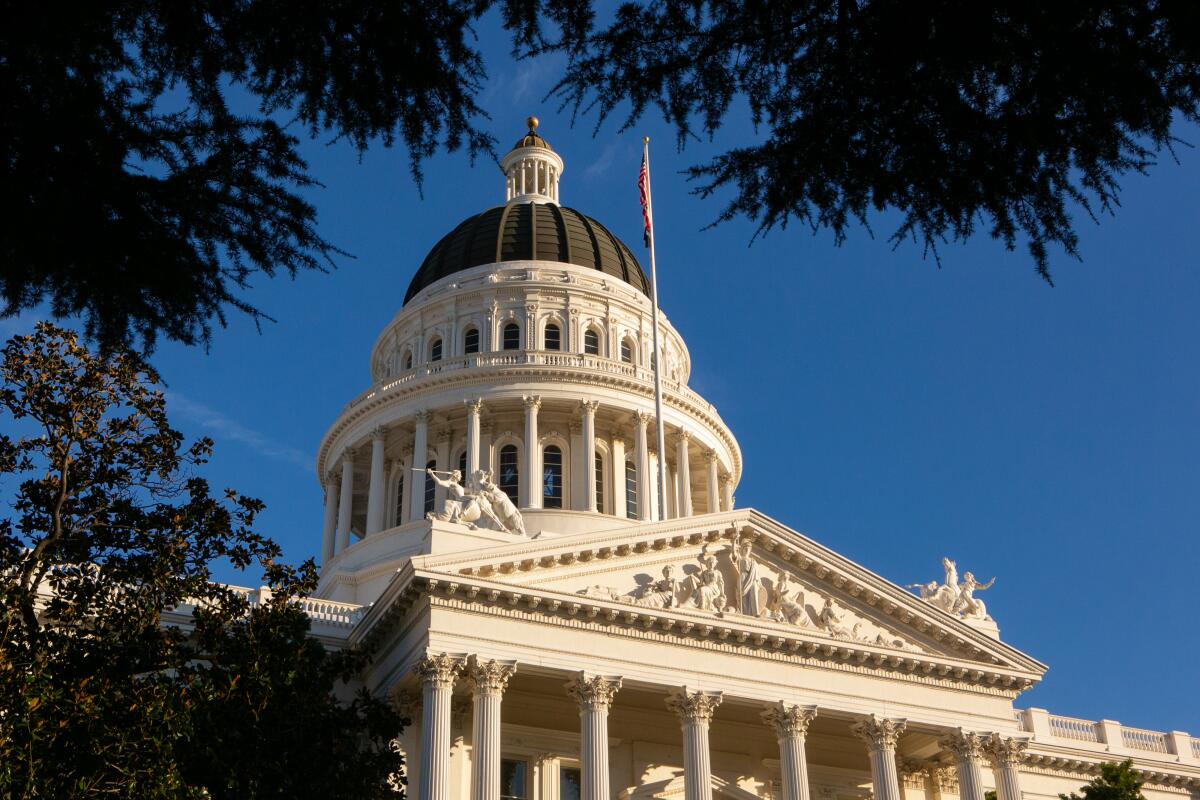
- Share via
This is the Feb. 24, 2022, edition of Boiling Point, a weekly newsletter about climate change and the environment in California and the American West. Sign up here to get it in your inbox.
There are currently 116 members of the California Legislature, and they were busy last week. Friday was the deadline to introduce new bills for this year’s legislative session — and like many journalists, lawmakers often need a deadline to get stuff done.
Foolishly, I set out this week to write short summaries of all the climate- and environment-related bills that are now up for debate in Sacramento. I say “foolishly” because I grossly underestimated just how much relevant legislation I would find. Members of the state Senate and Assembly filed many dozens of bills — maybe hundreds? — on topics from sea level rise to the electric grid.
So here’s the deal. Scroll down to read about 30 bills I found interesting, with the understanding that this is far from a complete list, and that many proposals worth discussing aren’t included simply because I ran out of time. I’ve also decided not to cover bills on two of my favorite topics, clean energy and electric vehicles — expect a full edition of Boiling Point on those proposals soon.
Any bills not included here that you’d like me to feature next time? Send me an email with your suggestions! And while we’re at it, let’s not forget that Gov. Gavin Newsom’s budget proposal, unveiled last month, includes $37 billion for fighting climate change.
Alright, here we go:
Climate and environmental justice
AB 1001: Under the California Environmental Quality Act, government agencies can approve polluting industrial facilities or other harmful projects in disadvantaged communities even if “mitigation” measures designed to lessen the environmental impacts don’t actually help those residents. This bill would change that, requiring CEQA mitigation to take place directly in those at-risk neighborhoods. It would also require government agencies to consider environmental justice in CEQA reviews for the first time.
- Author: Cristina Garcia (D-Bell Gardens)
- Status: Passed by Assembly; still needs Senate approval
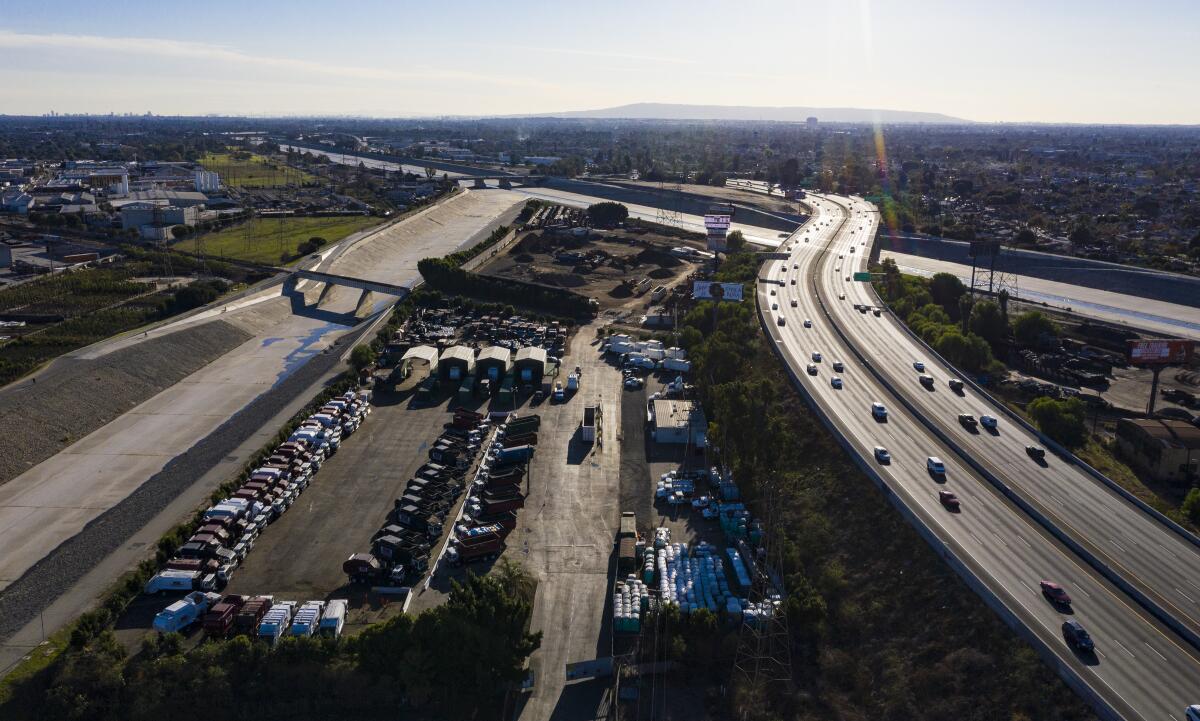
AB 1778: This bill would block freeway expansions in areas with high rates of pollution and poverty. It was spurred by reporting from my colleagues Liam Dillon and Ben Poston, who found that more than 200,000 people nationwide have lost their homes to federal road projects over the last 30 years, with some of the largest projects disproportionately displacing Black and Latino families. Just this week, Liam reported that even canceled highway projects can leave neighborhoods hurting for decades.
- Author: Cristina Garcia (D-Bell Gardens)
- Status: Referred to Transportation Committee
AB 1857: Even as California pushes for more recycling and composting, two municipal waste incinerators — giant machines that burn trash — continue to operate in Long Beach and Stanislaus County, adding pollution to low-income communities that already bear a heavy environmental burden. The facilities’ operators actually receive credits for burning trash instead of sending it to landfills. This bill would end those credits, and require that cities prioritize recycling and composting before turning to incineration.
- Author: Cristina Garcia (D-Bell Gardens)
- Sponsors: Californians Against Waste, Earthjustice, East Yard Communities for Environmental Justice, Valley Improvement Projects
- Status: Referred to Natural Resources Committee
AB 2076: Heat waves are the deadliest climate-fueled disaster, killing an estimated 3,900 people in California over the last decade, according to an L.A. Times investigation. This bill would try to save lives by requiring the appointment of a state-level “chief heat officer” and the development of new programs to help people stay cool, particularly in underserved communities. Officials would also be required to track heat deaths and hospitalizations more closely — a key shortcoming identified by our investigation.
- Author: Luz Rivas (D-North Hollywood)
- Sponsor: Climate Resolve
- Status: Introduced
AB 2238: Like the previous bill, this one is all about protecting Californians from extreme heat. It would establish a ranking system for heat waves and require state officials to develop an early-warning system to help people prepare. Those ideas are backed by experts, some of whom say naming heat waves like we do hurricanes would also help. The Times editorial board supports the bill.
- Authors: Luz Rivas (D-North Hollywood), Eduardo Garcia (D-Coachella)
- Sponsor: State Insurance Commissioner Ricardo Lara
- Status: Introduced
AB 2419: The infrastructure bill passed by Congress and signed by President Biden last year is expected to provide tens of billions of dollars to California. This bill would require the state to spend at least 40% of those funds on projects that provide “direct benefits” to historically neglected communities, with an additional 10% earmarked for projects that help low-income households.
- Author: Isaac Bryan (D-Los Angeles)
- Status: Introduced
AB 2851, AB 2887, AB 2903 and AB 2929: All four bills deal with lithium and geothermal energy production at the southern end of the Salton Sea, in California’s Imperial Valley — a topic I’ve covered extensively. While the bills still need to be filled out with details, their goal is to ensure that low-income Imperial Valley residents see real benefits from lithium extraction. Imperial County supervisors, for their part, want to see a four-year university campus to train local engineers and chemists. This issue was also discussed by President Biden this week at a White House event on critical minerals, as my colleague Anumita Kaur reports.
- Author: Eduardo Garcia (D-Coachella)
- Status: Introduced
Fighting fire
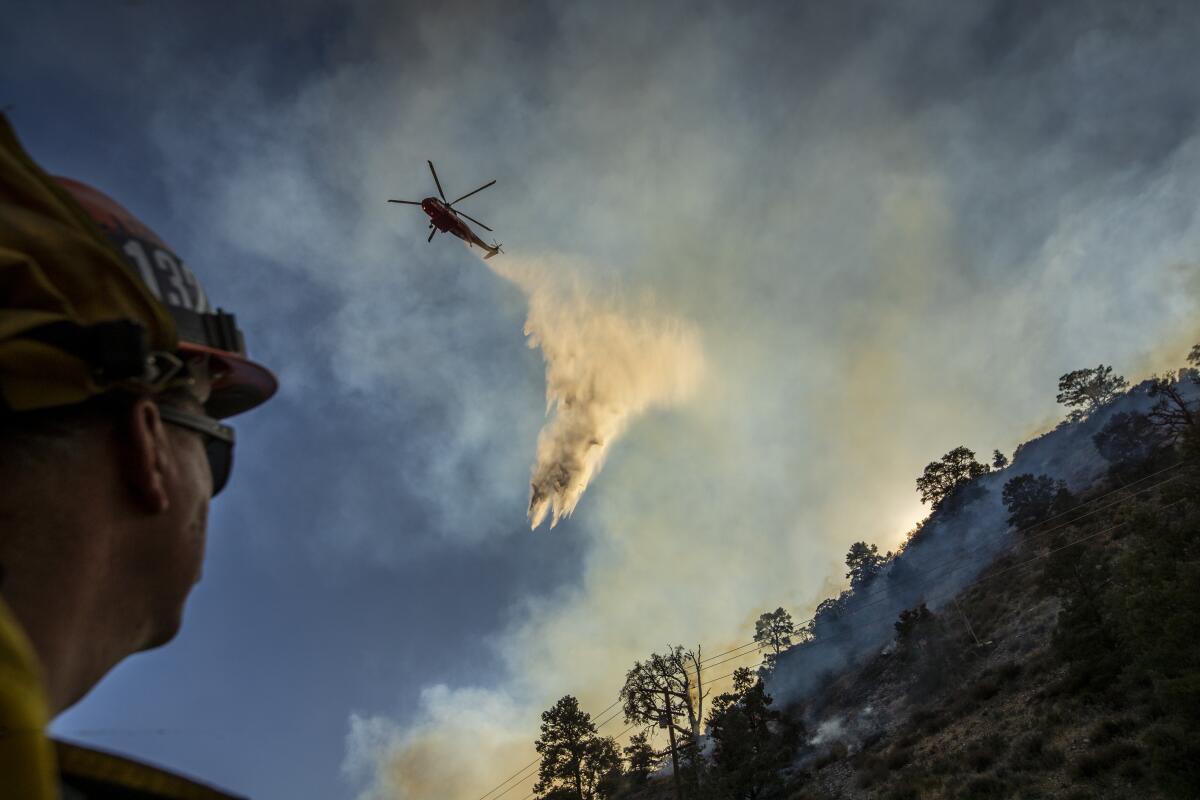
AB 1078: Since 2020, California has required that new homes be built with solar panels. But a previous law signed by Newsom exempted some homeowners forced to rebuild after a wildfire — and this bill would extend the exemption to people whose homes burned in 2020, the worst fire year in the state’s recorded history. The Natural Resources Defense Council opposed the earlier exemption, saying it “would saddle homeowners with higher energy costs for decades to come” and undermine climate progress.
- Author: Jim Patterson (R-Fresno)
- Status: Passed unanimously by Assembly; still needs Senate approval
SB 1215/AB 2440: These bills would fight a different kind of fire: battery fires. Lithium-ion batteries are crucial for electric vehicles and cleaning up the power grid — but if discarded improperly when they’re tapped out, they can start fires and contaminate the environment. These bills would attempt to address that problem by creating a system for consumers to safely dispose of batteries. Tesla co-founder J.B. Straubel is thinking about the same issue; his battery recycling company will start collecting used electric vehicle batteries in California and extracting materials such as cobalt and copper for reuse, my colleague Russ Mitchell reports.
- Authors: Josh Newman (D-Fullerton), Jacqui Irwin (D-Thousand Oaks)
- Sponsors: California Product Stewardship Council, Californians Against Waste, RethinkWaste
- Status: Referred to Rules Committee/Introduced
AB 2387: In 2018, California voters approved a bond measure to make $4.1 billion available for state parks, water projects, coastal protection and other climate measures. This bill would put an even bigger bond measure — $7.43 billion — on the June 2022 ballot, with the money going toward wildfire prevention, drought preparation, safe drinking water and extreme-heat initiatives.
- Authors: Eduardo Garcia (D-Coachella), Kevin Mullin (D-South San Francisco)
- Status: Introduced
AB 2705: California’s wildfire crisis is driven in part by the changing climate, and in part by decades of building new subdivisions in areas primed to burn. This bill would block local governments from approving new residential developments in the highest-risk fire zones unless the developer follows state guidelines for hardening homes against flames, among other steps to reduce risk. It would also provide financial assistance to harden 300,000 existing homes within three years, which could cost $1 billion annually.
- Author: Sharon Quirk-Silva (D-Fullerton)
- Status: Introduced
AB 2889: This bill would require utility companies with at least 50% of their service territories in high-fire-risk areas — aka Pacific Gas & Electric — to include plans for burying power lines in the wildfire mitigation plans they submit to the state. PG&E is currently making plans to spend $25 billion burying 10,000 miles of power lines underground, to reduce the risk of wildfire ignitions.
- Author: Buffy Wicks (D-Oakland)
- Status: Introduced
Fossil fuels and emissions
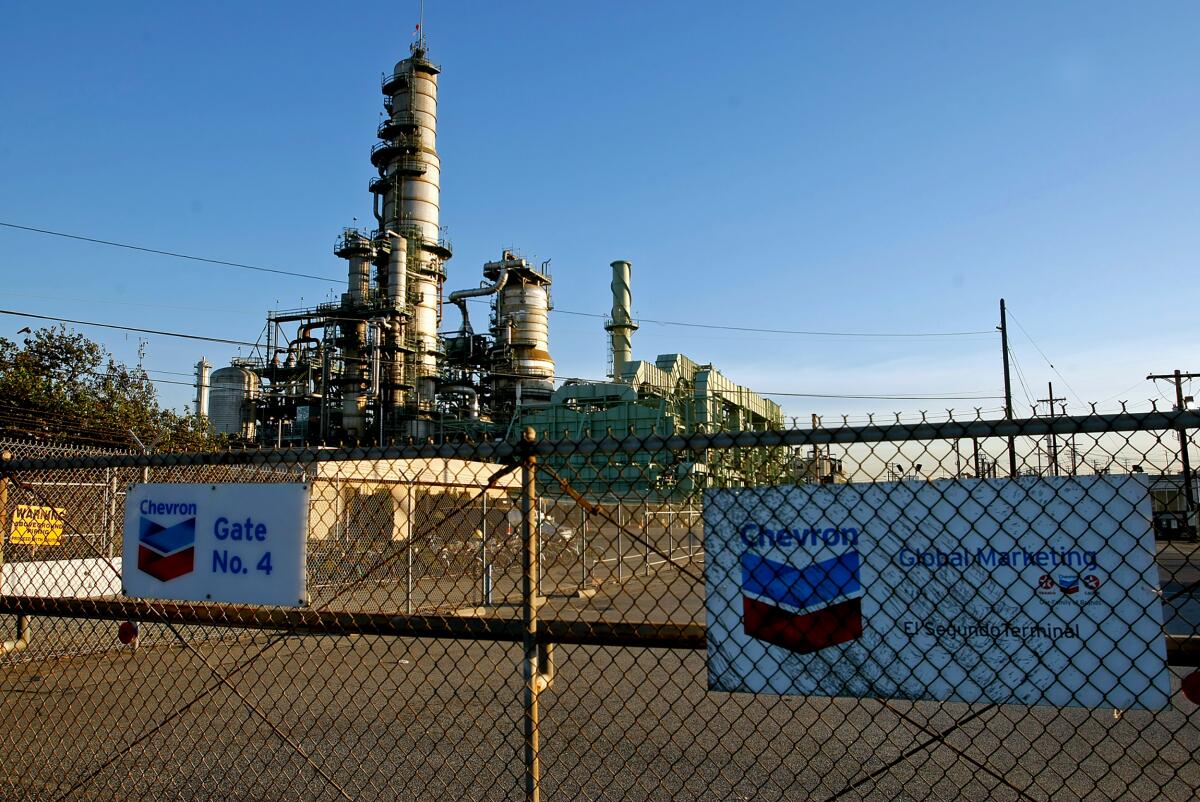
SB 260: This first-of-its-kind legislation would require U.S-based corporations that do business in California and earn more than $1 billion in annual revenue to publicly disclose their greenhouse gas emissions. This would include “scope three” emissions from the corporations’ supply chains — or in the case of fossil fuel companies, from the burning of the oil and natural gas they sell.
- Authors: Scott Wiener (D-San Francisco), Henry Stern (D-Los Angeles)
- Sponsors: Carbon Accountable, Sunrise Bay Area, California Environmental Voters
- Status: Passed by Senate; still needs Assembly approval
SB 1173: The divestment movement has gained traction, with activists calculating that universities and other asset managers have committed to divesting nearly $40 trillion from coal, oil and gas companies. This bill would require California’s massive public employee pension funds, CalPERS and CalSTRS, to join the party by divesting from the 200 largest publicly traded fossil fuel firms.
- Authors: Lena Gonzalez (D-Long Beach), Scott Wiener (D-San Francisco)
- Status: Referred to Rules Committee
SB 1322: Californians are often frustrated by high gas prices — now more than ever, with prices hitting a record high this week and a Russian invasion of Ukraine poised to send them even higher. This bill would create some transparency by requiring oil refineries to disclose each month how they’re paying for crude, and how much of a markup they’re charging for the finished product.
- Author: Ben Allen (D-Santa Monica)
- Status: Referred to Rules Committee
SB 1486: Six years after the Aliso Canyon leak spewed methane gas and other chemicals over L.A.’s Porter Ranch neighborhood, activists are still fighting to close the gas storage field. This bill would require Southern California Gas Co. to shut down Aliso Canyon by 2027, and also direct the company to work with state officials and electric utilities to develop a plan to reduce natural gas demand in the Los Angeles Basin. That could involve retrofitting homes to use electric heating and cooking instead of gas.
- Author: Henry Stern (D-Los Angeles)
- Status: Referred to Rules Committee
AB 1676: There are few topics more controversial in climate circles than carbon capture. Scientists have found that some amount of carbon capture will almost certainly be needed to keep global warming below 1.5 degrees Celsius, but many activists say fossil fuel companies are using the technology as an excuse to avoid reducing emissions quickly and dramatically. This bill would “facilitate the deployment of carbon capture, utilization, and sequestration in order to help meet the state’s climate change goals.”
- Authors: Autumn Burke (D-Marina del Rey), Jordan Cunningham (R-Paso Robles), Cottie Petrie-Norris (D-Laguna Beach)
- Status: Introduced
AB 1966: This bill would establish the “California Equitable Just Transition Fund” to help train fossil fuel workers for clean energy jobs, and to provide them with wage and benefit assistance if they’re laid off from their current jobs. But while some oil workers support this kind of proposal — as I wrote about last year — other powerful labor unions are working to defend the status quo.
- Author: Al Muratsuchi (D-Rolling Hills Estates)
- Status: Introduced
Water and the coast
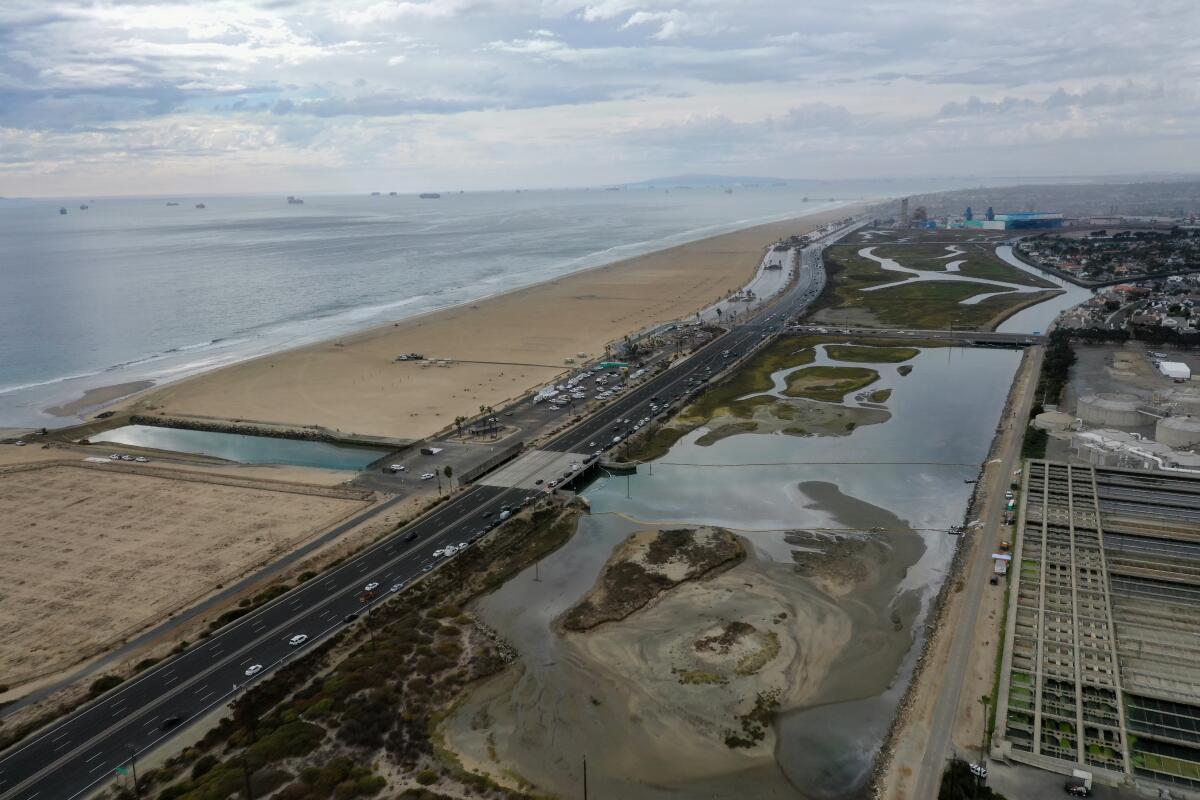
SB 953: October’s big oil spill off the Southern California coast has led to renewed calls to ban offshore drilling. This bill would answer those calls by requiring regulators to terminate all oil leases in state waters by 2023. California doesn’t have jurisdiction over drilling in federal waters, though, meaning only three active oil platforms would be affected, my colleague Phil Willon reports.
- Author: Dave Min (D-Irvine)
- Status: Referred to Natural Resources and Water Committee
SB 1036: The Golden State’s treasured coastline is threatened by rising seas, oil drilling and a history of wetland destruction. This bill would establish the California Ocean Corps as a four-year pilot program to train young people in coastal restoration work and give them opportunities to do that work. The $12-million pilot would be run by the existing Orange County Conservation Corps.
- Author: Josh Newman (D-Fullerton)
- Sponsors: Orange County Conservation Corps, Surfrider Foundation
- Status: Referred to Rules Committee
SB 1078: Last fall, Newsom vetoed a bill that aimed to prepare the California coast for rising sea levels. As described by The Times’ Rosanna Xia, the legislation would have offered loans to help local governments buy properties at risk of falling into the ocean, and eventually demolish them or restore them as public parks. But the idea of “managed retreat” has proved controversial among coastal landowners — hence Newsom’s veto. This new version of the legislation would create a more limited pilot program.
- Author: Ben Allen (D-Santa Monica)
- Sponsor: State Controller Betty Yee
- Status: Referred to Rules Committee
SB 1219: This bill would dissolve the State Water Resources Control Board — a powerful agency that oversees water rights and drought response — and establish a “blue ribbon commission” to develop recommendations for “a modern 21st century set of water agencies.” CalMatters columnist Dan Walters is not a fan, saying the bill “does nothing to solve the yawning gap between water demand and water supply that developed during decades of political inaction and is worsening due to climate change.”
- Author: Melissa Hurtado (D-Sanger)
- Status: Referred to Rules Committee
Land use and conservation
AB 30: Previous legislation that would have called on California to protect 30% of its lands and water by 2030 — a vision backed by scientists and conservationists — couldn’t garner enough support to pass. This bill would take a more tentative step, declaring it to be a state policy goal that “all Californians have safe and affordable access to nature and access to the benefits of nature.”
- Author: Ash Kalra (D-San Jose)
- Status: Passed by Assembly; still needs Senate approval
SB 307: A proposal to revive a defunct North Coast railroad and use it to ship coal from Montana, Utah and Wyoming to the Port of Humboldt Bay has stirred up fierce opposition from conservationists — especially since the rail corridor would otherwise be repurposed as the Great Redwood Trail, connecting San Francisco Bay to Humboldt Bay. This bill would block the coal train.
- Author: Mike McGuire (D-Healdsburg)
- Status: Passed by Senate; still needs Assembly approval
SB 886: Berkeley residents have used the California Environmental Quality Act to block construction of student and faculty housing at the city’s namesake university. Critics say it’s the latest example of NIMBY homeowners abusing CEQA — even though dense housing development can help fight climate change by preventing suburban sprawl, and thus limiting the need for long car trips. This bill would exempt UC Berkeley and other public universities from lengthy environmental reviews when building housing.
- Author: Scott Wiener (D-San Francisco)
- Status: Referred to Rules Committee
AB 1910: The Golden State doesn’t have enough water, enough affordable housing or enough green space in low-income communities of color. This bill would potentially address all three of those problems, by creating a state grant program to help local governments convert publicly owned golf courses — which use enormous amounts of water — to housing and public parks.
- Author: Cristina Garcia (D-Bell Gardens)
- Status: Referred to Housing and Community Development Committee, and Local Government Committee
So many bills! And now, here’s what else is happening around the West:
TOP STORIES
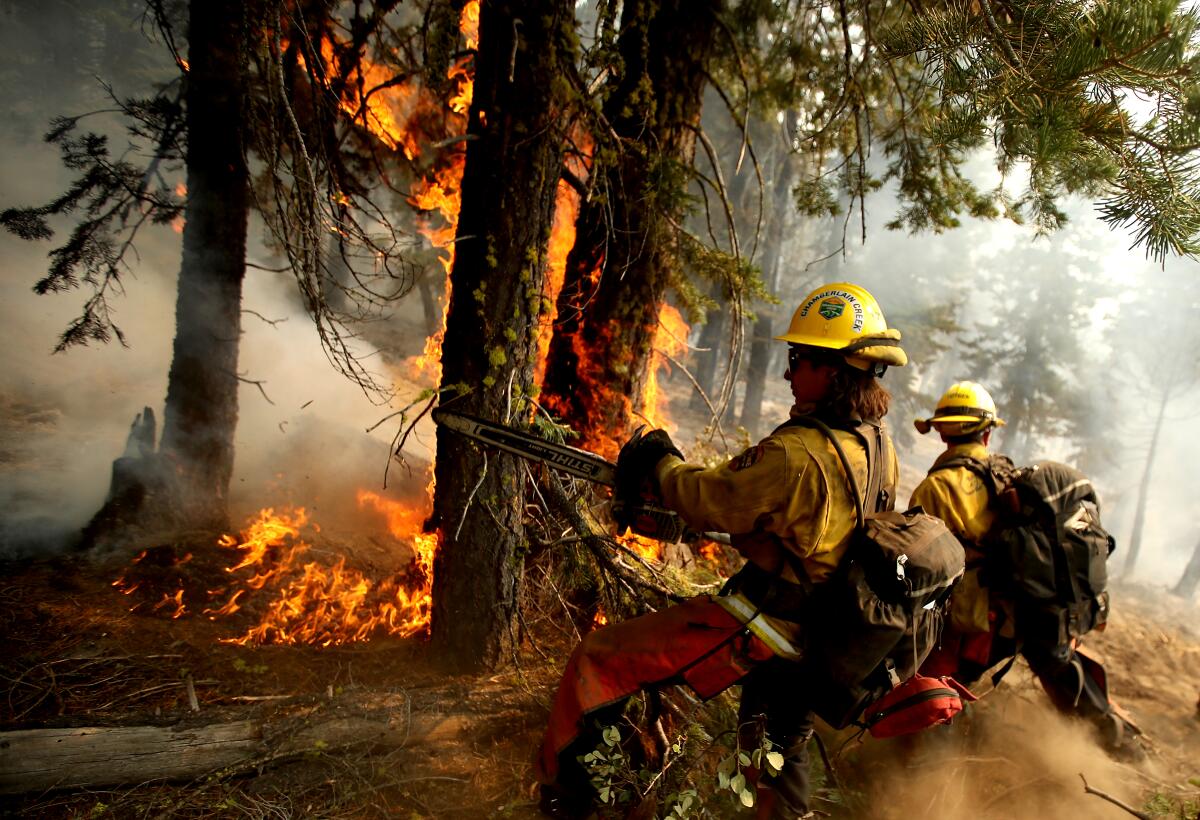
The effects of wildfire on a Western watershed can linger for years, with much more water running into streams and rivers from a burned forest, creating a higher risk of downstream floods, debris flows and drinking water contamination. My colleague Hayley Smith has the details on the new research, which was led by UCLA scientists. Another new study out of UCLA found that Southern California could see twice as many high-risk fire days by 2100 if we don’t reduce carbon pollution — so that’s not great. If you’re looking for tips on how to keep your home safe from wildfire, The Times’ Jon Healey has got you covered.
In Mendocino County’s Jackson demonstration forest, a local tribe is fighting to end a long history of logging, which would help keep carbon pollution out of the atmosphere. The Coyote Valley Band of Pomo Indians could end up co-managing the forest with California officials in a first-of-its-kind arrangement, Lila Seidman reports for The Times. But it’s not a done deal, with state officials still working out details with the tribe — and the timber industry and its supporters pressing for continued logging.
The Environmental Protection Agency is fining Tesla $275,000 for violating air pollution regulations at its Fremont electric vehicle factory. The violations stem from the use of toxic chemicals in Tesla’s paint shop, my colleague Russ Mitchell reports. In other Tesla news, Russ and Margot Roosevelt wrote about disturbing allegations of racism and hostile working conditions for Black employees at the Fremont factory, including managers using racist slurs, segregated work areas and denial of promotions.
POLITICAL CLIMATE
After a great deal of controversy, the California Democratic Party voted to stop taking money from fossil fuel companies. You might remember I wrote about this debate in October, at which point Democratic Party leaders were driving climate activists crazy by refusing to take a stand on fossil fuel industry contributions. Even with this week’s vote, some activists say the prohibition doesn’t go far enough, as Joe Garofoli writes for the San Francisco Chronicle. Elsewhere on the state politics scene, I enjoyed this Canary Media conversation with U.S. Sen. Alex Padilla on the prospects for climate and clean energy action in Congress.
A federal judge appointed by President Trump struck down the Biden administration’s “social cost of carbon,” a tool used by federal officials to evaluate the climate impacts of major decisions. The judge wrote that fully considering the climate impacts of federal oil and gas leasing could harm certain states by limiting fossil fuel extraction. But in an ironic twist, Biden’s Interior Department now says it will pause oil and gas lease sales because of the judge’s ruling. Details here from Lisa Friedman at the New York Times, who notes that the judge supported his decision by citing a clause in the Constitution that doesn’t exist.
Federal investigators say former Interior Secretary Ryan Zinke misused his position to advance a commercial development project in Montana, which included a brewery he seemingly hoped to operate. Yes, this is a real story by Matthew Brown at the Associated Press. And yes, I’m surprised we’re still talking about Zinke, too. He’s currently running for Congress again.
THE ENERGY TRANSITION
Americans are seeing a growing number of power outages as aging infrastructure, climate-driven weather extremes and the retirement of coal and gas plants make the electric grid less reliable. The Wall Street Journal’s Katherine Blunt wrote an excellent story exploring what’s going on, and what solutions might look like. Here in the West, federal officials plan to spend $2 million studying ways to keep producing hydropower at Glen Canyon Dam even if climate-fueled drought causes water levels to keep dropping, Zak Podmore reports for the Salt Lake Tribune. One option might be installing generators at a lower elevation.
There are all sorts of technical barriers to converting a home from gas heating and cooking to all-electric appliances. For everything you ever wanted to know about electrical panels, breaker boxes and the nitty-gritty of building electrification, see this piece by Jeff St. John for Canary Media, and this follow-up piece on companies developing solutions. Electrification is starting to put the squeeze on gas companies — as is the Federal Energy Regulatory Commission, which just voted to consider the climate impacts of major gas pipelines, Daniel Moore reports for Bloomberg Law. That means new pipelines are less likely to be approved.
Speaking of FERC, the agency is now controlled by Democrats, and it could do a lot to ease construction of new power lines and help solar and wind farms plug into the electric grid more quickly. Inside Climate News’ Jim Bruggers wrote about how that might work. In the meantime, many states are already building lots of renewable power — especially Texas, which added nearly three times as much solar, wind and energy storage as California in 2021, Dan Gearino writes for Inside Climate News.
AROUND THE WEST
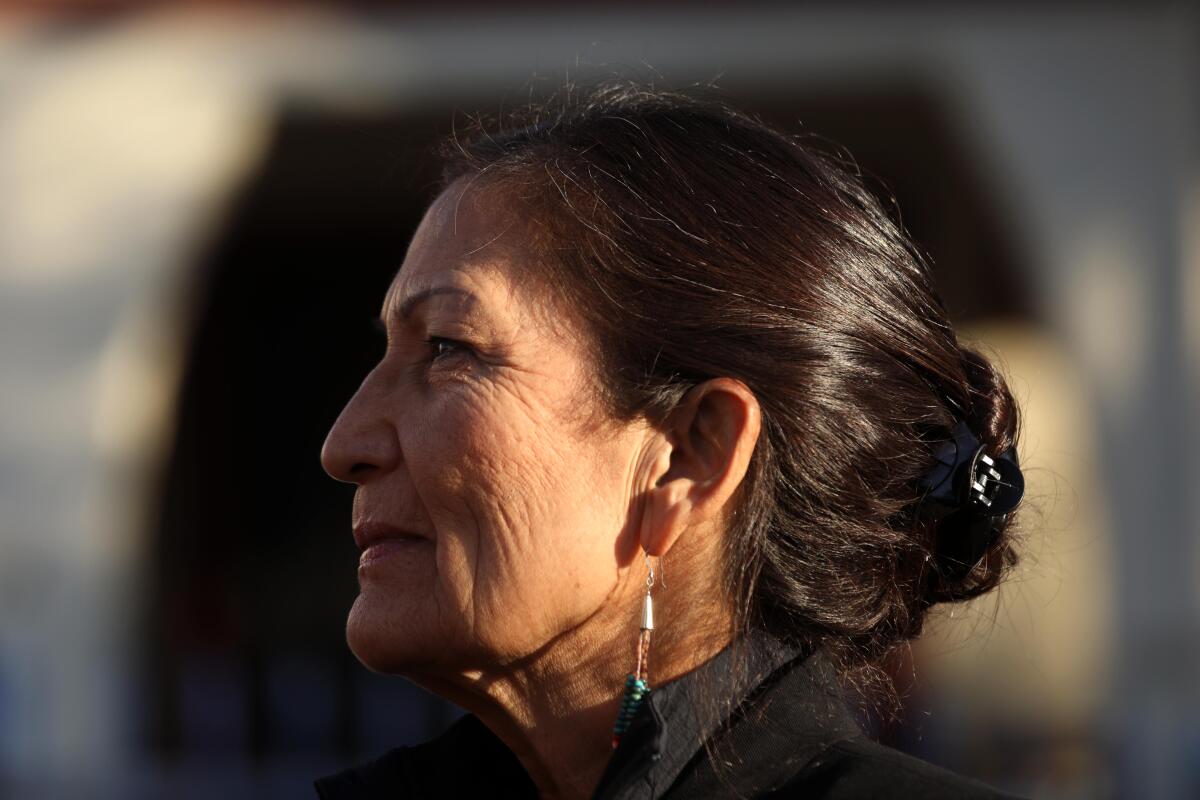
Interior Secretary Deb Haaland was in Arizona this week, announcing plans to distribute billions of dollars to Native American tribes to fund badly needed drinking water projects. That money is coming from the infrastructure law signed by President Biden last year, Debra Utacia Krol reports for the Arizona Republic. And speaking of water and Arizona, the AP’s Felicia Fonseca reports that a federal appeals court rejected a bid by environmental groups and a tribe to shut down a uranium mine near the Grand Canyon. Critics say the mine — which is currently inactive — threatens to contaminate groundwater supplies.
The Biden administration is preparing to spend hundreds of millions of dollars cleaning up public lands that were torn apart by border wall construction. But federal officials don’t plan to tear down existing wall segments — and they say they’ll even fill in some gaps left by construction crews hired under President Trump, Nick Miroff reports for the Washington Post.
“The existence of the rural gentry class — and increasing income inequality that coincided with economic decline in rural areas — ought to make clear that not all rural Americans are voting against their class interests when they side with Republicans.” This deeply reported essay by Nick Bowlin — a correspondent for High Country News — offers insight into the economic and political forces reshaping rural America, and the Democratic Party’s failure to truly grapple with those forces.
ONE MORE THING

Got plans tomorrow evening, Friday 2/25? If not, you might want to check out this virtual event with legendary scientist, author and environmentalist Jane Goodall, hosted by the L.A. Times Book Club. She’ll be in conversation with Times staff writer Dorany Pineda, discussing her latest project, “The Book of Hope: A Survival Guide for Trying Times.” You can register for free here.
Ahead of the event, Goodall talked with The Times about the importance of hope, against a backdrop of climate change and other crises: “If we don’t have hope that we can put the fire out, we will give up. It’s not hope or fear — or anger. We need them all.”
We’ll be back in your inbox next week. If you enjoyed this newsletter, please consider forwarding it to your friends and colleagues.




